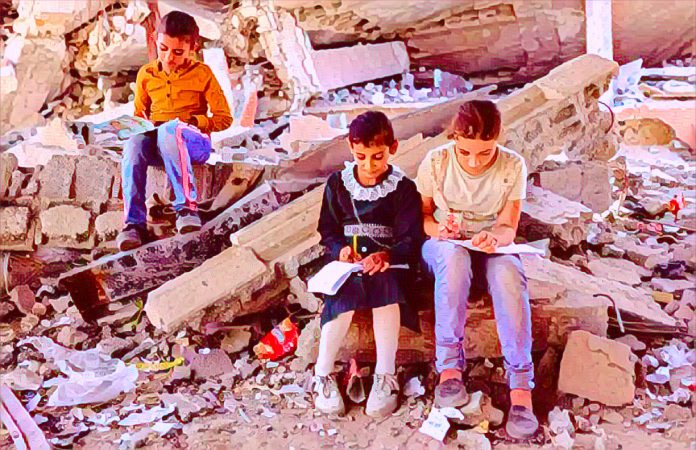KEY POINTS
-
In conflict-prone areas, teachers are providing vital mental health support to children affected by violence and trauma, despite lacking formal training.
-
With a severe shortage of professional mental health services, classrooms have become safe spaces for emotional healing and routine.
-
Experts and unions urge governments to invest in mental health training for teachers and integrate psychosocial support into school systems.
In communities repeatedly scarred by violence, displacement, and economic instability, school teachers are emerging as unlikely front-line responders in the mental health crisis facing thousands of children.
Far beyond their traditional roles as educators, many are now doubling as informal counselors, surrogate parents, and emotional first responders in conflict-prone zones.
As armed conflict, insurgency, and inter-communal clashes continue to displace millions across regions like the Lake Chad Basin, North-East Nigeria, and parts of the Middle Belt, the mental health impact on children is becoming more visible—though still largely undocumented. Teachers in these areas are increasingly stepping into the gap left by the near-absence of professional psychological support.
In towns like Maiduguri, where Boko Haram attacks once shuttered schools for months on end, classes have resumed under military guard. But for children who return to class carrying memories of loss, abduction, or violence, the classroom is more than just a space for learning—it has become a sanctuary.
“Sometimes, the school is the only place where they feel safe,” says Amina Haruna, a primary school teacher in Konduga. “We don’t just teach reading and math. We learn to recognize when a child hasn’t eaten, hasn’t slept, or is too afraid to speak.”
Teachers bear the emotional weight of an overlooked crisis
Mental health professionals warn that the psychological toll of living in conflict zones is especially severe for children, who are still developing emotionally and socially.
Symptoms often include anxiety, post-traumatic stress disorder (PTSD), withdrawal, aggression, and learning difficulties.
Yet with less than one psychiatrist per 500,000 people in many affected areas, access to formal therapy is almost non-existent. In this vacuum, teachers like Haruna, without formal training, offer the only consistent form of emotional support.
“We see signs—nightmares, crying spells, sudden silence—and we try our best,” she says. “Sometimes all they need is someone to listen.”
The Nigerian Union of Teachers (NUT) acknowledges this evolving role but says educators need urgent training and institutional support to effectively provide psychological first aid.
“Teachers are stretched thin,” says Yusuf Ismail, a representative of the NUT in Yobe State. “They are expected to teach, manage trauma, and even help students find food. That’s too much to place on them without adequate resources or training.”
UNICEF has begun training select teachers in trauma-informed classroom practices and basic psychosocial support in some of the worst-hit regions. But experts say these efforts must be scaled dramatically to reach every school in need.
A 2024 survey by the International Rescue Committee found that 68 percent of teachers in Borno and Adamawa states had students who had witnessed or experienced violence in the past year. Of these teachers, only 17 percent had received any training in mental health support.
“This is a silent emergency,” says Dr. Kehinde Alade, a child psychologist based in Abuja. “Teachers are on the front lines, but they’re also vulnerable. Burnout and emotional fatigue among them is growing.”
Teachers themselves are not immune to trauma. Many have lost students, colleagues, or their own families to violence. Despite this, they continue to show up, guided by duty, empathy, and the knowledge that their classroom may be the last remaining constant in a child’s life.
“There are days I want to quit,” says Haruna. “But when you see a child who once couldn’t speak laugh again, even for a moment, you remember why you stayed.”
Policy experts argue that to truly address the crisis, governments must include mental health in education budgets, build partnerships with NGOs for counselor deployment, and integrate mental health into teacher training curricula.
“We talk about rebuilding infrastructure, but we forget the emotional reconstruction that must happen too,” says Dr. Alade. “You can reopen schools, but if children are too traumatized to learn, then recovery remains incomplete.”
As insecurity continues to threaten access to education in parts of Africa and the Global South, the story of teachers in conflict-prone zones is one of courage, compassion, and silent resistance. They are not only teaching but also healing—one child, one classroom, one day at a time.



